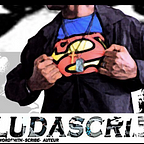A cat that sits on a hot stove never does it again
Why “Victim blaming” is sometimes necessary and the most loving thing you’ll do in some situations
How we harm those we love by coddling them from accountability
Dear Nephew
The term “victim-blaming” has become increasingly popular in the social media space.
Used like a sledgehammer to shut down any sort of questioning or examination of all the elements in the equation on how a person found themselves a victim of a certain circumstance.
Those who throw around the term do it from a noble place.
They want all responsibility to be placed on the perpetrator and attention not to be diverted by asking questions and further traumatizing the victim.
On the surface that sounds logical and valid.
But there are exceptions where questions should be asked and the equation examined.
Otherwise, a victim will keep being at the mercy of external forces, helpless to do anything.
Consider this:
1st Scenario:
John takes an unregistered cab ride home. On the way, he receives a phone call which the driver can hear and he loudly talks about having $10,000 in cash at home and $5,000 in jewellery.
That night John’s house is broken into, he and his family get beaten as the robbers demand the $10,000.
Now, did John deserve to be robbed?
No. The robbers should be prosecuted to the full extent of the law.
Yes. John is a victim, but loudly talking about having cash at home, in the presence of a stranger was unwise, some may say outrightly foolish. If John doesn’t learn from this mistake because any feedback or questions on how the robbers knew about the cash is called “victim blaming” he may keep putting himself and his family in danger.
2nd Scenario:
James, 27 is in a bar watching football and suddenly gets into a debate with another man, 29. James is 5ft 7 and last fought in primary school. This guy is 6ft 3 and looks like he spends 8 days a week at the gym. For 45 minutes James insults and taunts him loudly over what was initially a civil debate about the teams. James gets his ass kicked, a few broken ribs, swallowed teeth and blood.
Is James a victim of assault? Yes. Is he faultless? No.
Disagreements don’t need to lead to insults.
He should have assessed the situation and either avoided or de-escalate the tension, instead of picking a fight he stood no chance of winning, because
“he was wrong”, “I have a right to say my mind”.
Without the context of the story and only the result, if you are a friend of James and see his injuries.
What would be your reaction? What monster did this? Lock him up.
But on finding out not only did James start the fire but stoked the flames for 45 minutes.
Would a warning about his actions still be called “victim blaming”? or about him taking accountability?
3rd Scenario:
Your friend Jane dates a guy who sends red flags which either scream, Gold digger, Kleptomaniac.
Despite warnings, Jane ignores all your warnings, either citing jealousy and her ability to change him. She even blocks some of her friends on Instagram and Whatsapp because of their “negative energy” and hating on her happiness.
When he manifests those traits and leaves her devastated.
Is it still “victim blaming” to get Jane friend to examine her complicity?
With exception to rape, violence, molestation and racial/ethnic attacks.
We need to examine the part we played, consciously or unconsciously. Intentionally or inadvertently in unpleasant situations, we find ourselves.
Was it a lack of awareness or naivety?
An action or inaction?
Something we said or did in passing triggered a response.
Did I ignore red flags?
Idealize a person.
Make a choice without due diligence.
Think we were the special one or an exception?
Did I make a decision in desperation?
Did I unconsciously push them too far because I never expected an outburst?
Did I do something family and close friends let me get away with but didn’t?
Is there a reason I keep choosing this type of person?
The questions don’t take away responsibility from the aggressor, it doesn’t diminish their accountability.
After a terrorist attack, Intelligence and Security agencies ask themselves why they didn’t see it coming and what they can do to prevent being blindsided again.
They seek measures to avoid being victims.
It’s not their fault but that’s not the point. The point is to make sure they can prevent it from happening again.
Otherwise, they are sitting ducks if they just hope people stop being mean.
There is a reason as kids we became cautious with fire and hot surfaces after the first time we got burned.
Living in a perpetual state of learned helplessness is an exhausting existence
Introspection is critical to growth, self and situational awareness.
Like we defensive driving humans need to learn defensive living.
When we suffer pain from external forces, we can either be bitter about their cold-blooded actions and stay stuck feeling helpless or get better by examining how we can be more vigilant and never experience that pain again.
Make smart choices Kiddo
Your Uncle
If you like the #DearNephew series or know a young man who would benefit from them, please share and consider subscribing
What tips would you give your son, nephew, teenage brother or cousin?
